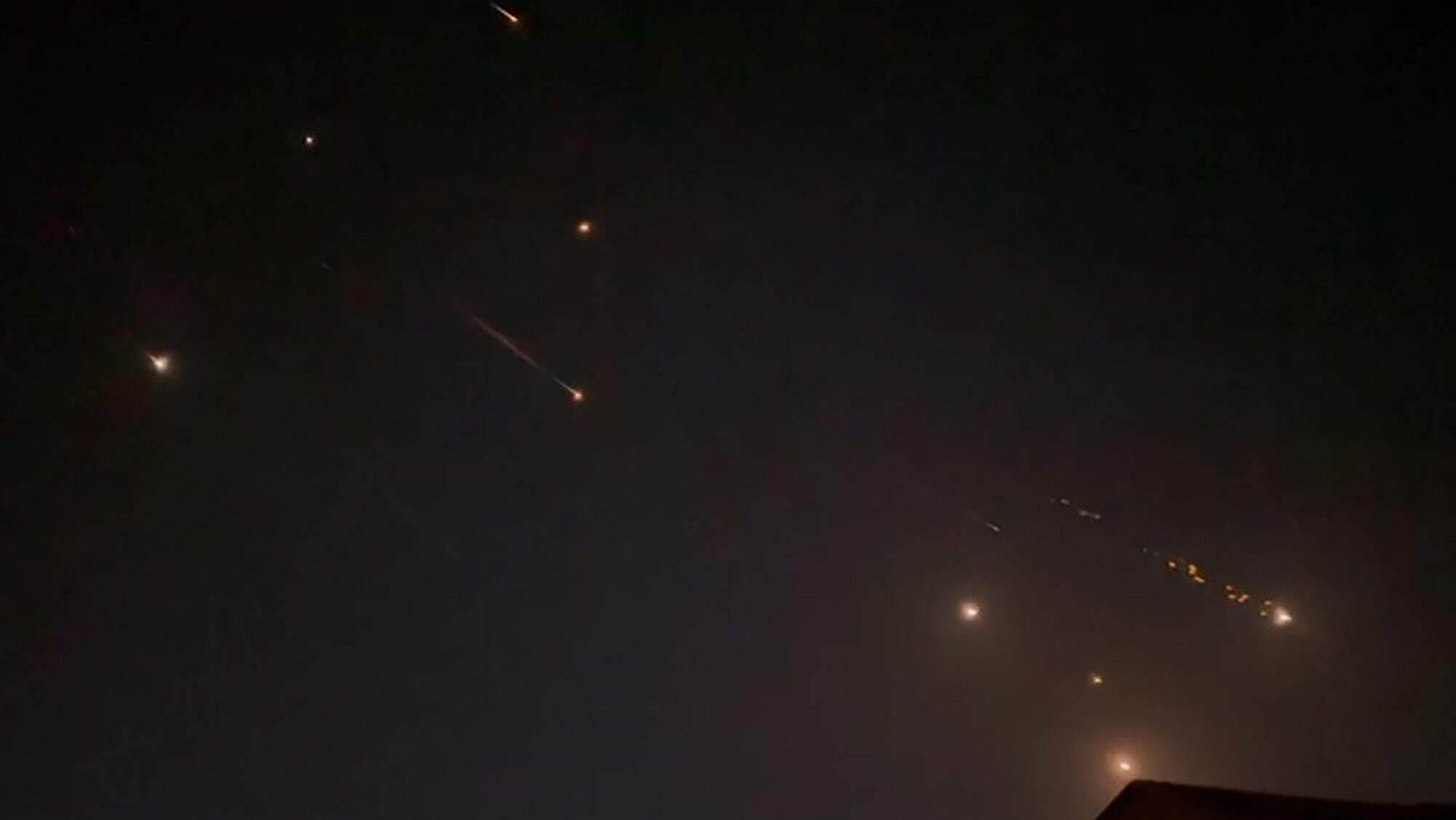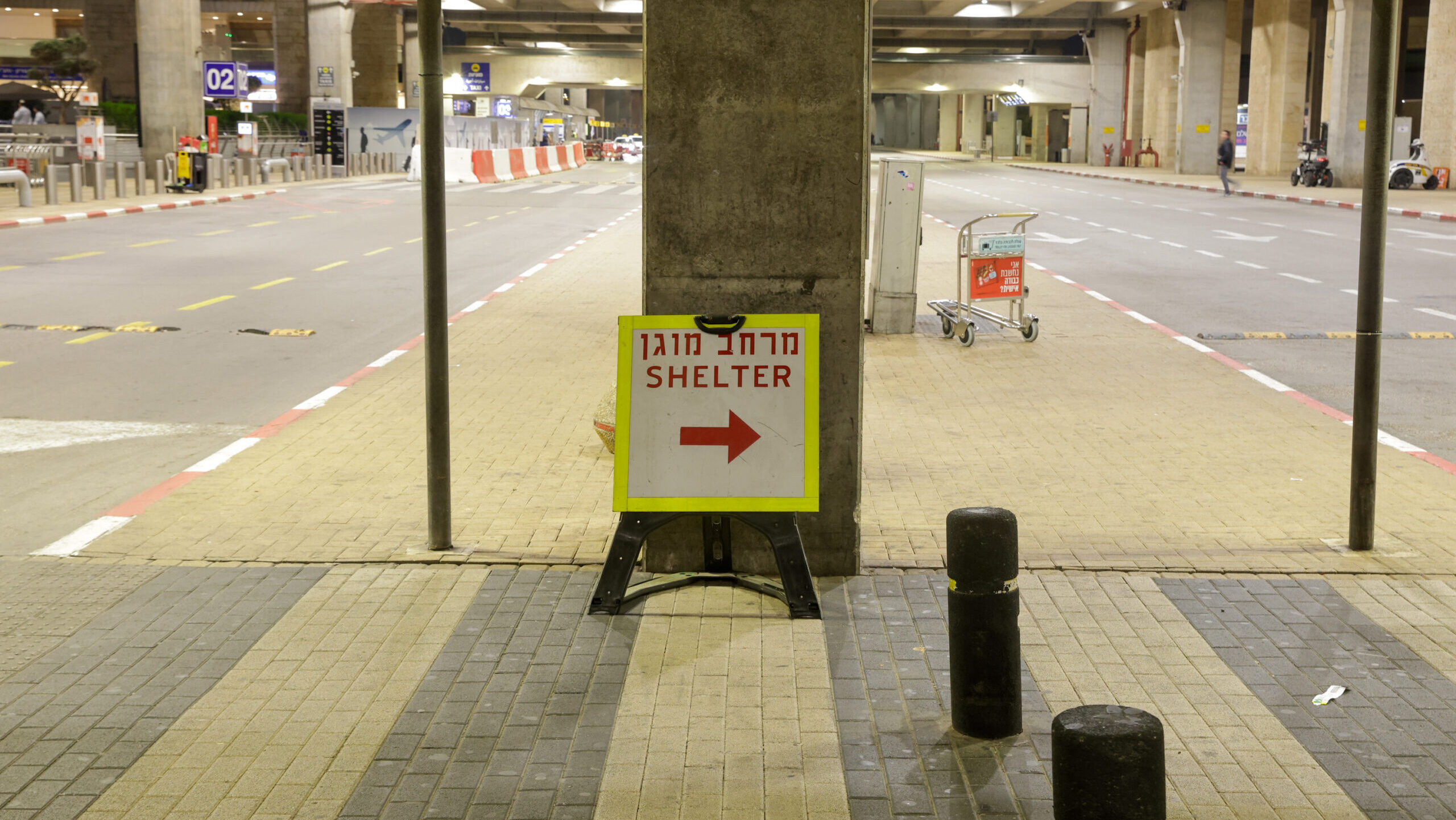Iran Fires Some 300 Drones, Missiles at Israel, US Said To Oppose Retaliation
Iran attacked Israel with 300 drones and missiles, claiming retaliation for a strike on its embassy in Damascus. The IDF intercepted most, but tensions escalate as the US opposes Israeli counterstrikes
Iran launched a substantial drone attack against Israel overnight into Sunday, deploying approximately 300 drones and missiles toward the Jewish state, following accusations from Iran that Israel was responsible for a deadly strike on its embassy in Damascus, which resulted in the deaths of several officers from the Iranian Revolutionary Guard Corps.
IDF Spokesman Rear Admiral Daniel Hagari confirmed the onset of the attack around 11 pm Saturday, indicating that Iran had also launched missiles in addition to drones and that the IDF had mobilized their aerial defense systems to intercept them. The Iranian Revolutionary Guards later validated these reports, stating their forces targeted specific sites within Israel.
Among the intercepted projectiles was a ballistic missile over southern Israel, which resulted in shrapnel injuries to a 7-year-old girl near Arad, now in serious condition at Soroka Hospital in Beersheba.
Hagari reported that the barrage consisted of 170 drones, 30 cruise missiles, and 120 ballistic missiles, with Israeli defenses successfully intercepting 99% of these weapons. However, some missiles penetrated the defenses, causing minor damage to the Nevatim Airbase in southern Israel, although operations at the base continued without major disruptions.
“Together with our partners, the IDF is operating at full force to defend the State of Israel—and the people of Israel. This is a mission that we are determined and ready to fulfill.”
IDF Spokesperson RAdm. Daniel Hagari on the current attack from Iran: pic.twitter.com/rjNqLPFs9X
— Israel Defense Forces (@IDF) April 13, 2024
According to military officials, the defense measures are robust but not infallible, and the operation to neutralize the drone threat could extend over several hours. Meanwhile, Israel took the precaution of closing its airspace for approximately seven hours.
Hagari also stated that no educational systems or public events hosting over 1,000 people will operate in the coming days and emphasized the importance of vigilance among civilians, advising immediate sheltering upon hearing warning sirens.
Israeli officials, including Prime Minister Benjamin Netanyahu, have convened to assess the ongoing situation and strategize their next steps. A senior Israeli official has hinted at a potent response to Iran’s actions, signaling possible further escalations.
In response to the unfolding situation, US President Joe Biden has announced plans to consult his national security team, and the White House has issued a statement reiterating steadfast support for Israel, emphasizing ongoing communication between President Biden, Israeli officials, and international allies.
However, according to reports from Axios and CNN, President Biden expressed, during a phone call with Prime Minister Benjamin Netanyahu, that the United States would oppose any Israeli counterattack on Iran and would not participate in such military actions.

This video grab from AFPTV, taken on April 14, 2024, shows explosions lighting up the sky in Hebron in the West Bank during an Iranian attack on Israel. (-/AFPTV/AFP via Getty Images)
Eldad Shavit, a senior researcher at the INSS and head of the Israel-US Research Program, highlighted the effectiveness of Israel’s air defenses and the diplomatic nuances of the US response. “President Biden praised the air defense capabilities that thwarted most of the attack, and the success itself conveys a strong message of deterrence.”
“President Biden prefers to promote a coordinated diplomatic response with G7 leaders against Iran and makes it clear to Prime Minister Netanyahu that the US stands by Israel but will oppose a counterattack and will certainly not participate in it.”
On the international stage, the United Nations Security Council is set to convene at the request of Israel, which is seeking condemnation of the Iranian attack and a designation of the Iranian Revolutionary Guard Corps as a terrorist organization. President Biden is also scheduled to lead a discussion with the Group of Seven (G7) nations to coordinate a diplomatic approach to the crisis.
In reaction to reports indicating that a second wave of drones has been launched by Iran, with these unmanned aerial vehicles crossing Iraqi airspace as they make their way towards Israeli targets, Iraq has also closed its airspace to all traffic to mitigate any associated risks. Additionally, the UK and Egypt have heightened their military readiness in light of the potential for further escalations.
Senior Researcher Dr. Raz Zimmt of the Institute for National Security Studies (INSS) weighed in on the shift in Iran’s approach to its conflict with Israel, noting that they previously relied on proxies but that “the killing of IRGC commander in Syria escalated tensions.”
“Iran chose deterrence over avoidance of conflict but doesn’t seek all-out war. Further escalation depends on Israel’s response, with potential for broader regional conflict involving Hizbullah.”


